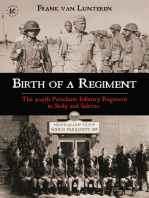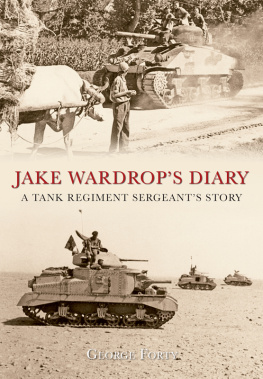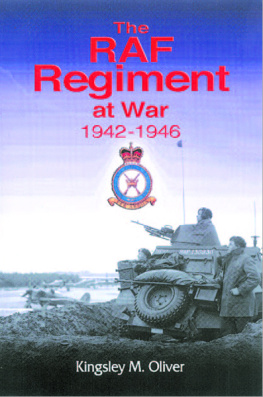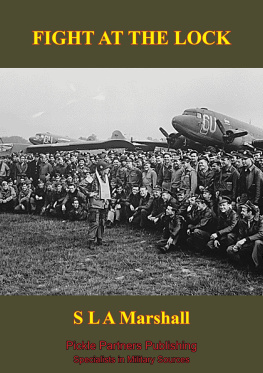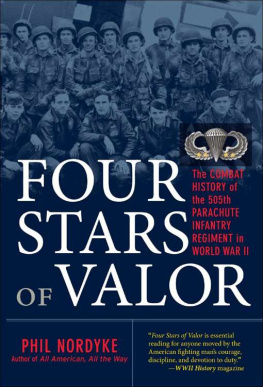This edition is published by PICKLE PARTNERS PUBLISHINGwww.pp-publishing.com
To join our mailing list for new titles or for issues with our books picklepublishing@gmail.com
Or on Facebook
Text originally published in 1950 under the same title.
Pickle Partners Publishing 2016, all rights reserved. No part of this publication may be reproduced, stored in a retrieval system or transmitted by any means, electrical, mechanical or otherwise without the written permission of the copyright holder.
Publishers Note
Although in most cases we have retained the Authors original spelling and grammar to authentically reproduce the work of the Author and the original intent of such material, some additional notes and clarifications have been added for the modern readers benefit.
We have also made every effort to include all maps and illustrations of the original edition the limitations of formatting do not allow of including larger maps, we will upload as many of these maps as possible.
THE RED BERET
BY
HILARY ST. GEORGE SAUNDERS
AUTHORS PREFACE
THIS is the story of the Parachute Regiment, of the officers, non-commissioned officers and men, drawn from almost every unit of the British Army, who volunteered to reach the field of battle by a novel and unique method. They were the first to wear the Red Beret, and to earn for themselves the name of the Red Devils, bestowed upon them in North Africa by an enemy who had good cause to fear their prowess. They were not, however, the only members of the British Army to wear this distinguished headgear. Those who dropped with them belonging to the Royal Engineers, the Royal Artillery, the Royal Corps of Signals, the Royal Army Service Corps and the Royal Army Medical Corps and those who went to battle in gliders also wore it and added lustre to its fame. Their story will, I hope, one day be told, when the facts have been collected and are available.
This story which, as I have said, concerns only the Parachute Regiment, does not pretend to be. complete, for it does not record every single deed performed by the units and individual members of the regiment. As one of its officers said to me when I was writing it, I hope your record will show what sort of people we were. I have tried to do so, and in this honourable task I have been greatly aided by Lieutenant-General Sir Richard N. Gale, K.B.E., C.B., D.S.O., M.C., Major-Generals E. E. Down, C.B., C.B.E., G. W: Lathbury, C.B., D.S.O., M.B.E., R. E. Urquhart, C.B., D.S.O., Brigadiers S. J. L. Hill, D.S.O., M.C., J. H. N. Poett, D.S.O., E. W. C. Flavell, D.S.O., M.C., C. H. V. Pritchard, D.S.O., Colonels J. W. Hackett, D.S.O., M.B.E., M.C..K. T. Darling. D.S.O., O.B.E., Lieutenant-Colonels P. J. Luard, D.S.O., O.B.E., A. S. Pearson, D.S.O., M.C., N. Crookenden, D.S.O., D. R. Hunter, M.C., T. B. H. Otway, D.S.O., J. D. Frost, D.S.O., M.C., Majors E. J. Warren, D.S.O., B. W. Briggs, M.C., J. R. D. Mayne, C. G. Lea, the late Captain J. A. Young. and the late Major R. A. Keene, M.C. and Corporal F. Newhouse who typed much of the material upon which the narrative is based. My thanks in equal measure are due to Group Captain M. A. Newnham, O.B.E., D.F.C., for permission to quote from his book, Prelude to Glory.
I must also thank His Majestys Stationery Office for permission to make use of the official publication By Air to Battle of which I am the author, and Sidgwick and Jackson for giving me permission to quote from the Collected Poems of Richard Spender.
Finally, I should like to thank my friend Geoffrey Throckmorton, C.B., for his indefatigable labours.
HILARY ST. GEORGE SAUNDERS
THESE TERRIBLE MEN
ON 15 th February 1941 passengers and staff in the railway station of Naples were given the opportunity to observe a small column of men dressed in bedraggled, dun-coloured uniforms of an unfamiliar pattern. They were marching one behind the other and each was connected with his neighbour by a length of rusty chain to which a heavy iron cannon ball was attached. Under Fascist rule such a sight was by no means uncommon; but these prisoners wore their chains with a difference. They clanked them ostentatiously, and as they did so they laughed aloud. What men were these who jested thus with gyves upon their wrists? The word went swiftly from mouth to mouth: British parachutists just captured. Where? In Apulia they say. It is swarming with them. So, according to bystanders interrogated long afterwards, the rumour spread, fostered by that tendency to exaggerate bad news which afflicts all people at war and the Italians more than most, and by the sinister report, soon proved true, that the number of parachutes picked up exceeded the number of prisoners by about forty.
Some of these terrible men were still at large then, roaming the countryside seeking, like the lion of Scripture, whom they might devour. Many days went by before it was borne in on the Italian authorities that in an operation involving parachute troops stores and weapons were dropped as well as men and that not every parachute, therefore, supported a soldier.
The men who tramped that day, manacled, through the echoing railway station towards an irksome captivity belonged to the 11 th Special Air Service Battalion and the adventure which had brought them to this pass had begun a month before.
The officers and other ranks composing the battalion had by then been training for more than six months, mostly at Ringway near Manchester, and they were showing signs of boredom. All were volunteers, all had seen active service for the most part during the disastrous campaign which had ended in the withdrawal from Dunkirk, all had jumped many times; and still action tarried and the more impatient among them had grown tired of waiting. In driblets, records Lieutenant-Colonel Cleasby-Thompson, the historian of those early days, men began to ask for return to unit. They were tired of showing off before generals and cabinet ministers in exercises in which the risk of possible injury and therefore of being excluded from battle was very real. There was fighting in the stony wastes west of the Egyptian border and their regiments were in the thick of it. They wished to march to the sound of the guns. Small parties of them, good men every one, began to slip away; nor could their commanding officer say them nay. Patience is not a notable virtue of the young warrior, and it needed both patience and imagination in the dreary winter of 1941 to foresee the day when a whole division would fall upon the foe from the sky as dawn came up behind Ranville and flooded with light the green meadows of Normandy.
Then one day in January a sudden whisper or buzz went round the camp. Something was about to happen. Men awaiting return to their regiments applied to remain with the Parachute Wing and a long queue of parachute soldiers formed outside the orderly room each man ready with some ingenious reason to prove that he at least was indispensable to the success of whatever was in the wind. The commanding officer, Lieutenant-Colonel C. I. A. Jackson, Royal Tank Regiment, paraded the battalion and informed them that an operation which might involve very deep penetration into enemy territory was being planned. He added that it was unlikely that any arrangements would be made for the extraction of what he tersely described as the survivors and that it was by no means certain that, though they would be wearing uniform, the enemy would not regard them as spies and treat them as such. He ended by calling for volunteers. Every officer and man of the five hundred on parade stepped forward.







